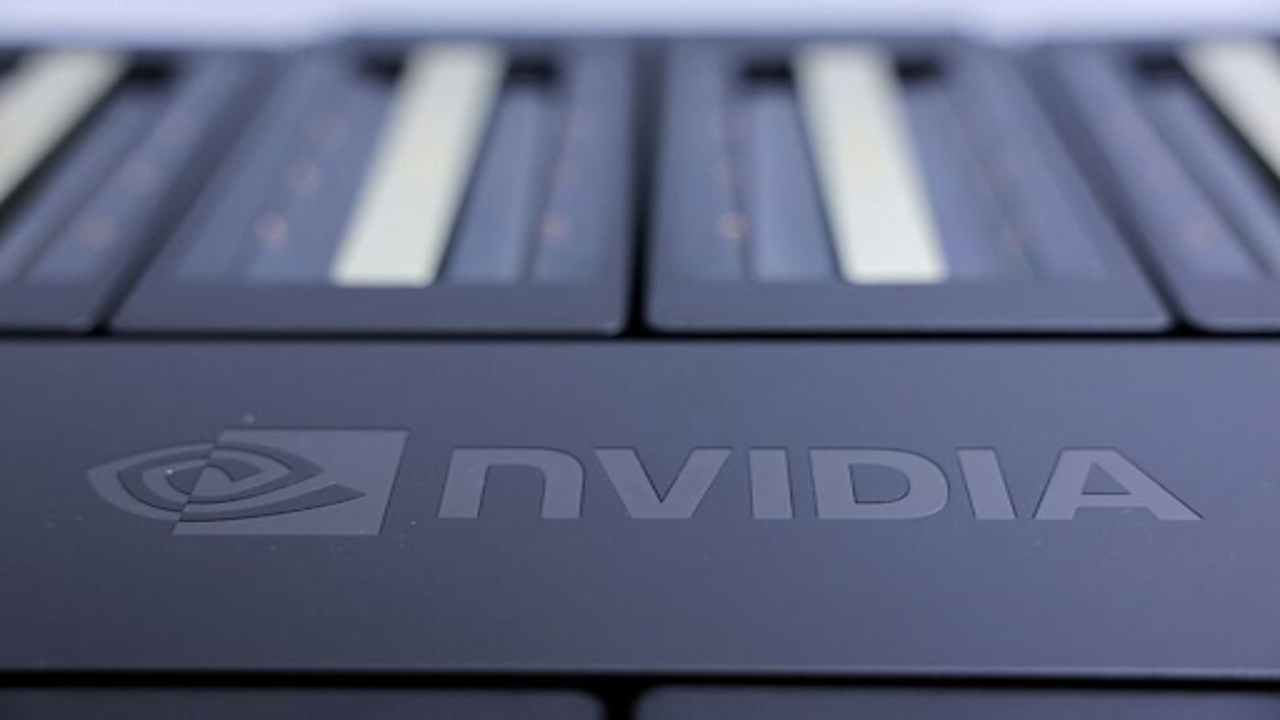
An Nvidia Blackwell GPU is shown at the COMPUTEX tech show in Taipei, Taiwan, on June 4, 2024. Reuters
Countries are increasingly turning to Nvidia’s chips to develop their own artificial intelligence (AI) models in local languages, fueling a surge in demand for the company’s technology. This trend comes as businesses and governments around the world place greater emphasis on AI, particularly generative AI, which includes advanced systems like OpenAI’s ChatGPT.
Despite Nvidia’s third-quarter sales forecast for its AI chips falling short of investor expectations, the company is seeing a significant uptick in global interest. Governments, in particular, are investing in their own AI systems and the necessary hardware to support them, which is driving Nvidia’s growth.
Nvidia's Chief Financial Officer, Colette Kress, indicated that sales from government and international clients developing AI models in their native languages are expected to contribute billions of dollars to Nvidia’s revenue in the fiscal year ending in January 2025. This is a notable increase from earlier projections. The company anticipates total revenue of approximately $32.5 billion for the third quarter ending in October.
Kress highlighted the growing trend among countries to develop AI systems tailored to their unique languages, cultures, and data. For instance, Japan’s National Institute of Advanced Industrial Science and Technology is creating an AI supercomputer using Nvidia’s H200 graphics processors. This example illustrates how nations are prioritizing AI as a key component of their technological infrastructure and national strategy.
Governments are also using AI to bolster national security. As IDC analyst Shane Rau explained, AI models need to be adapted to a country’s specific political, economic, cultural, and scientific contexts. This customization requires both specialized AI models and the corresponding hardware and software setups, making advanced chips like Nvidia’s crucial.
In response to these trends, businesses are also seeking to leverage AI for various applications. For example, IBM announced in May that Saudi Arabia’s Data and Artificial Intelligence Authority will use IBM’s Watsonx AI platform to train its Arabic language model, ALLaM. This move reflects the broader effort by companies to align with government initiatives aimed at developing AI technologies in regional languages.
The surge in demand for AI technologies is not without its challenges. In 2023, Washington imposed stricter controls on the export of advanced chips to China to prevent the country from gaining technological advantages that could benefit its military. This has impacted Nvidia’s sales in the Chinese market but has simultaneously heightened interest from other regions and sectors.
As more countries and businesses pursue their own AI solutions, Nvidia’s GPUs are set to benefit significantly from this global shift. The combination of government investments in national AI projects and continued support from major cloud providers like Microsoft positions Nvidia to capitalize on this growing demand for advanced AI hardware.















